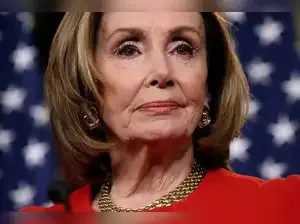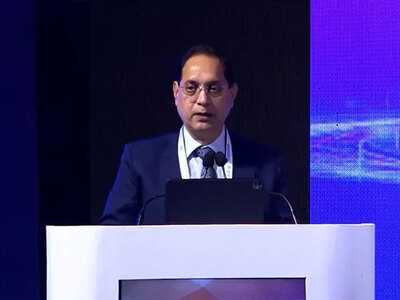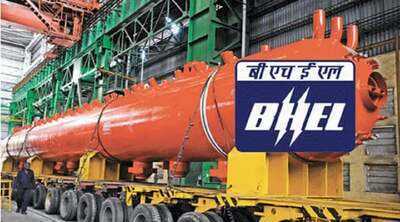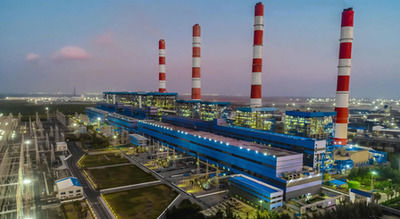Ever since swashbuckling gold miners came to this dusty spit on the Pacific, San Francisco has been home to big personalities. From bohemian poets to drag queens, from larger-than-life mayors to tech moguls, the city has always embraced its colorful characters.
Perhaps nobody has left a bigger mark than a teetotaling Catholic mother of five in pantsuits and pearls.
Nancy Pelosi, who early Thursday announced her plans to retire, made history for serving as the first female speaker of the House. She will be remembered for muscling the Affordable Care Act through Congress and for being the chief antagonist to President Donald Trump.
But San Francisco sometimes took her for granted. Like many mothers, she was just presumed to be always there, always doing the work. She focused the first half of her life on her children -- she didn't run for office until she was 47 -- and the second half on her city.
"Dear San Francisco," her voice began in a nearly six-minute farewell video she posted Thursday that doubled as a love letter to her city. "We are fortunate to live in the most beautiful, remarkable place on earth."
The first shot in the video was of the Golden Gate Bridge. Beyond San Francisco, that is the image Democrats may have of Pelosi, as a majestic leader who was a symbol for the party.
But for San Franciscans, Pelosi was more like the Bay Bridge, an unheralded workhorse.
"You can't really look around the city and not see her influence on every block," Mayor Daniel Lurie said in an interview Thursday morning, shortly after watching Pelosi's video with his wife.
Early in her tenure, the federal government wanted to decommission the Presidio, a military outpost that dates back more than two centuries to Spanish colonization, and develop condominiums on some of the most prime real estate in the world, overlooking the Golden Gate Bridge.
Pelosi wasn't having it. She worked with local officials to make it a national park, run by a federal trust dedicated to preserving the land for public use. Decades later at the Presidio, she helped create a perch atop a covered roadway into a natural playground, aptly named Tunnel Tops Park, with stunning views of the bay.
In a city that has long been a haven for the LGBTQ+ community, Pelosi devoted herself to gay rights and confronting the AIDS epidemic that decimated that community. Among her legacies will be the National AIDS Memorial Grove she helped to create in Golden Gate Park -- at the corner of Nancy Pelosi Drive and Bowling Green Drive.
There, the names of a flower girl from her wedding and a legislative aide, both lost to the disease, are etched into the memorial's circle of friends.
David Perry, a longtime publicist in the city, said that he and other members of the gay community had been skeptical when the wealthy Pelosi, initially dismissed by some as a lightweight socialite, took office in 1987.
"A lot of people thought, 'Oh my god, the progressive agenda is dead,'" he said.
But she quickly won over the community by talking about AIDS in her first speech on the House floor and pushing for more funding for AIDS patients.
"In everything she does, she has always represented San Francisco values," Perry said.
She regularly brought home federal money for the Bay Area Rapid Transit system and local hospitals. She was often spotted around town -- sitting in the pews at Grace Cathedral, waving from convertibles at the annual Pride Parade, visiting the food bank, attending opening night galas for the symphony and opera.
San Francisco is not without its problems, especially after the pandemic, which blunted the momentum of the tech boom and left the city core bereft of workers and shoppers. Homeless encampments and drug use continue to plague the Tenderloin neighborhood near City Hall. But Pelosi has not drawn the same blame as mayors and state leaders, who wield more control over policing and social services.
The San Francisco Giants brought nearly 3 million fans through their gates this season at Oracle Park, a jewel of a ballpark along the city waterfront. Chances are, not many of them knew the role Pelosi played in the team's continuing presence in the city.
Larry Baer, the team president, said Thursday that the Giants would probably be playing in Florida if Pelosi had not personally lobbied the Major League Baseball commissioner and several team owners in 1992 to reject the team's cross-country move.
Baer said that even as Pelosi's prominence on the national stage grew larger, she had acted like the daughter of a mayor that she was. Her father (and, later, her brother) led the city of Baltimore, and Pelosi had that same focus on "the nitty-gritty of her city," he said.
She has long had Giants season tickets and a wardrobe stuffed with stylish attire in orange and black, the team's colors.
Those who walk north from Oracle Park today, along the Embarcadero and just past the Bay Bridge, will enjoy unfettered views of the Ferry Building, the bay and the city skyline. That was not the case when Pelosi first took office.
Art Agnos, a former mayor of San Francisco, said that without Pelosi, he would not have been able to persuade the transportation secretary to allow the dismantling of the Embarcadero Freeway after it had been damaged in the 1989 earthquake. The hulking thoroughfare along the waterfront was despised by many residents for blocking postcard-worthy views.
Why was Pelosi the difference?
"Because she's Nancy Pelosi, that's why!" Agnos said. "She knows what it takes to motivate people politically, personally and socially."
On Thursday, people in San Francisco said they, too, appreciated what she had done for the city. But not everybody gushed.
On Nancy Pelosi Drive, the street in Golden Gate Park that runs alongside the AIDS Memorial Grove, some lamented that she had not been as outspoken as they would have liked on progressive issues such as ending the war in the Gaza Strip.
Others said she had maybe stayed in office too long.
Nina Pratchios, 60, a nanny, pushed her charge in a stroller and said she appreciated Pelosi's work on behalf of her city.
But, she said, it also seemed fitting that Pelosi had announced she was retiring the same week that Zohran Mamdani, a young progressive, was elected mayor of New York City.
"It makes me hopeful," she said. "Her stepping down is making room for the next generation."
At Tunnel Tops Park, as the fog floated across the bay Thursday morning, Kate Brickert, 61, started tearing up when thinking about Pelosi's legacy and her impact on the city.
"A legend -- an icon," Brickert said. "She has had incredible vision and the wherewithal to actually make it happen."
In retirement, there may still be more for Pelosi to accomplish in San Francisco. She has not yet left her fingerprints everywhere in the city, it seems.
For all of the Giants games she has attended, she has yet to throw out a first pitch, Baer believes. He hopes to rectify that.
And there may yet be other landmarks on which to leave her imprint. Perry, the publicist, said he would start an effort to rename San Francisco International Airport in her honor.
Perhaps nobody has left a bigger mark than a teetotaling Catholic mother of five in pantsuits and pearls.
Nancy Pelosi, who early Thursday announced her plans to retire, made history for serving as the first female speaker of the House. She will be remembered for muscling the Affordable Care Act through Congress and for being the chief antagonist to President Donald Trump.
But San Francisco sometimes took her for granted. Like many mothers, she was just presumed to be always there, always doing the work. She focused the first half of her life on her children -- she didn't run for office until she was 47 -- and the second half on her city.
"Dear San Francisco," her voice began in a nearly six-minute farewell video she posted Thursday that doubled as a love letter to her city. "We are fortunate to live in the most beautiful, remarkable place on earth."
The first shot in the video was of the Golden Gate Bridge. Beyond San Francisco, that is the image Democrats may have of Pelosi, as a majestic leader who was a symbol for the party.
But for San Franciscans, Pelosi was more like the Bay Bridge, an unheralded workhorse.
"You can't really look around the city and not see her influence on every block," Mayor Daniel Lurie said in an interview Thursday morning, shortly after watching Pelosi's video with his wife.
Early in her tenure, the federal government wanted to decommission the Presidio, a military outpost that dates back more than two centuries to Spanish colonization, and develop condominiums on some of the most prime real estate in the world, overlooking the Golden Gate Bridge.
Pelosi wasn't having it. She worked with local officials to make it a national park, run by a federal trust dedicated to preserving the land for public use. Decades later at the Presidio, she helped create a perch atop a covered roadway into a natural playground, aptly named Tunnel Tops Park, with stunning views of the bay.
In a city that has long been a haven for the LGBTQ+ community, Pelosi devoted herself to gay rights and confronting the AIDS epidemic that decimated that community. Among her legacies will be the National AIDS Memorial Grove she helped to create in Golden Gate Park -- at the corner of Nancy Pelosi Drive and Bowling Green Drive.
There, the names of a flower girl from her wedding and a legislative aide, both lost to the disease, are etched into the memorial's circle of friends.
David Perry, a longtime publicist in the city, said that he and other members of the gay community had been skeptical when the wealthy Pelosi, initially dismissed by some as a lightweight socialite, took office in 1987.
"A lot of people thought, 'Oh my god, the progressive agenda is dead,'" he said.
But she quickly won over the community by talking about AIDS in her first speech on the House floor and pushing for more funding for AIDS patients.
"In everything she does, she has always represented San Francisco values," Perry said.
She regularly brought home federal money for the Bay Area Rapid Transit system and local hospitals. She was often spotted around town -- sitting in the pews at Grace Cathedral, waving from convertibles at the annual Pride Parade, visiting the food bank, attending opening night galas for the symphony and opera.
San Francisco is not without its problems, especially after the pandemic, which blunted the momentum of the tech boom and left the city core bereft of workers and shoppers. Homeless encampments and drug use continue to plague the Tenderloin neighborhood near City Hall. But Pelosi has not drawn the same blame as mayors and state leaders, who wield more control over policing and social services.
The San Francisco Giants brought nearly 3 million fans through their gates this season at Oracle Park, a jewel of a ballpark along the city waterfront. Chances are, not many of them knew the role Pelosi played in the team's continuing presence in the city.
Larry Baer, the team president, said Thursday that the Giants would probably be playing in Florida if Pelosi had not personally lobbied the Major League Baseball commissioner and several team owners in 1992 to reject the team's cross-country move.
Baer said that even as Pelosi's prominence on the national stage grew larger, she had acted like the daughter of a mayor that she was. Her father (and, later, her brother) led the city of Baltimore, and Pelosi had that same focus on "the nitty-gritty of her city," he said.
She has long had Giants season tickets and a wardrobe stuffed with stylish attire in orange and black, the team's colors.
Those who walk north from Oracle Park today, along the Embarcadero and just past the Bay Bridge, will enjoy unfettered views of the Ferry Building, the bay and the city skyline. That was not the case when Pelosi first took office.
Art Agnos, a former mayor of San Francisco, said that without Pelosi, he would not have been able to persuade the transportation secretary to allow the dismantling of the Embarcadero Freeway after it had been damaged in the 1989 earthquake. The hulking thoroughfare along the waterfront was despised by many residents for blocking postcard-worthy views.
Why was Pelosi the difference?
"Because she's Nancy Pelosi, that's why!" Agnos said. "She knows what it takes to motivate people politically, personally and socially."
On Thursday, people in San Francisco said they, too, appreciated what she had done for the city. But not everybody gushed.
On Nancy Pelosi Drive, the street in Golden Gate Park that runs alongside the AIDS Memorial Grove, some lamented that she had not been as outspoken as they would have liked on progressive issues such as ending the war in the Gaza Strip.
Others said she had maybe stayed in office too long.
Nina Pratchios, 60, a nanny, pushed her charge in a stroller and said she appreciated Pelosi's work on behalf of her city.
But, she said, it also seemed fitting that Pelosi had announced she was retiring the same week that Zohran Mamdani, a young progressive, was elected mayor of New York City.
"It makes me hopeful," she said. "Her stepping down is making room for the next generation."
At Tunnel Tops Park, as the fog floated across the bay Thursday morning, Kate Brickert, 61, started tearing up when thinking about Pelosi's legacy and her impact on the city.
"A legend -- an icon," Brickert said. "She has had incredible vision and the wherewithal to actually make it happen."
In retirement, there may still be more for Pelosi to accomplish in San Francisco. She has not yet left her fingerprints everywhere in the city, it seems.
For all of the Giants games she has attended, she has yet to throw out a first pitch, Baer believes. He hopes to rectify that.
And there may yet be other landmarks on which to leave her imprint. Perry, the publicist, said he would start an effort to rename San Francisco International Airport in her honor.





